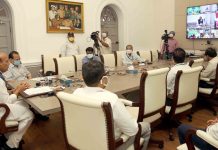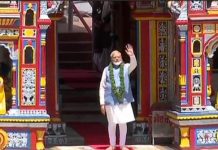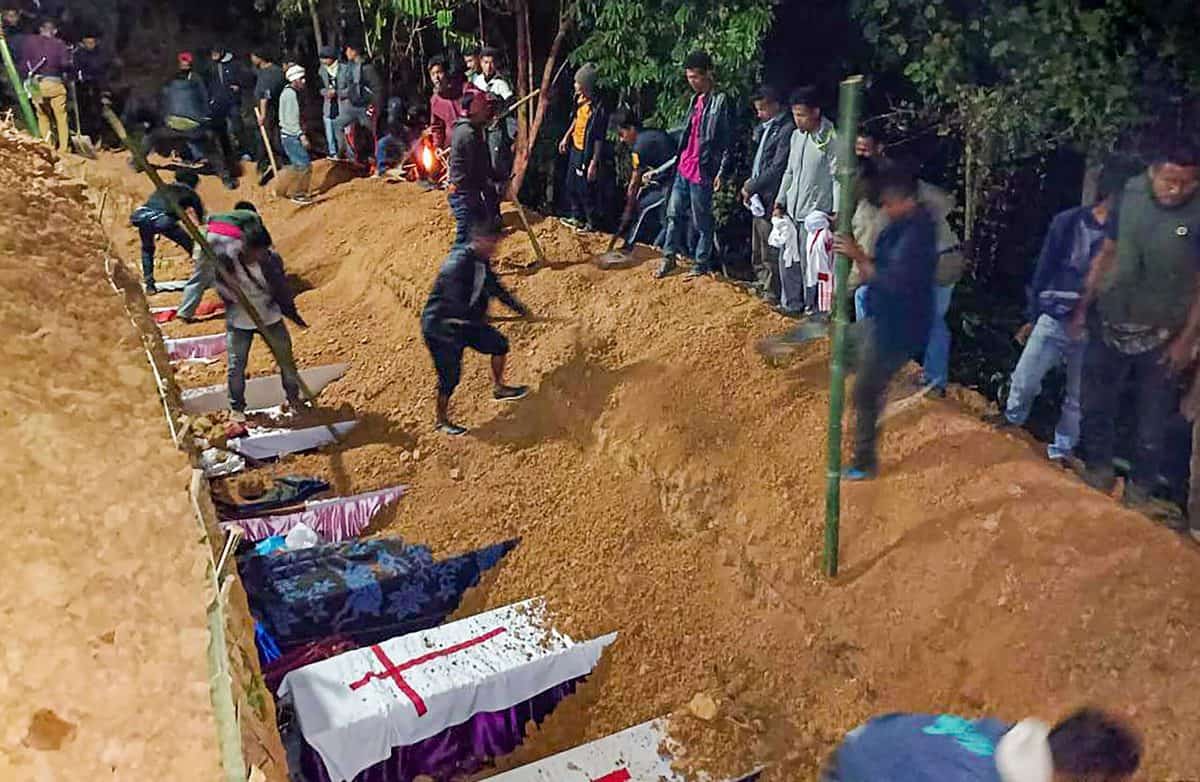
Ground Zero Report
Unprovoked firing by the Army upon a pick-up vehicle resulting in the death of 15 civilians in Nagaland’s Mon district has caused widespread anger and outrage , reports Nava Thakuria
Voices against the brutal Armed Forces Special Powers Act 1958 (AFSPA) were never thin in northeast India. Years back, Manipur witnessed massive uprising against the draconian law that empowers the security personnel, engaged in counter insurgency operations, to act according to their conveniences in disturbed areas with all impunity from the civilian courts. T Manorama Devi and Sharmila Irom Channu emerged as almost deities in the Meitei society during the uproarious anti-AFSPA situation in the region.
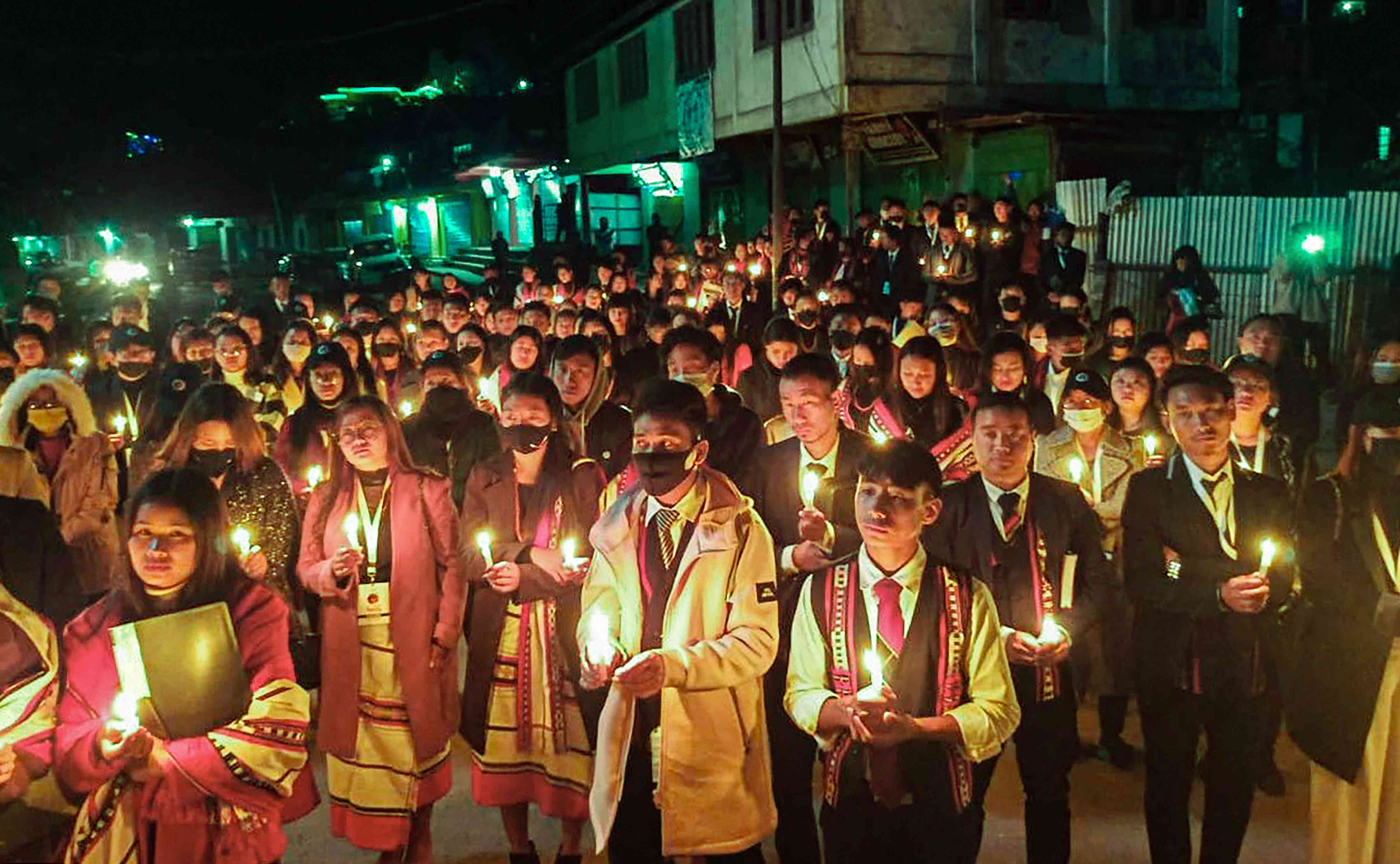
Lately the issue became alive and flashier with the incident of Oting village in Nagaland, where 14 civilians lost their lives under the complicity of AFSPA. From local villages to State level organizations, north-eastern to national and international institutions have now come forward raising voices against the six decade old Act urging its urgent repeal and some putting a unique challenge to the Union government in New Delhi for implementing the law in terror-stricken central Indian provinces.
Disturbing news broke from Nagaland’s Mon district on 4 December 2021, where the security forces opened fire on a vehicle carrying a group of village youths from daily work at Tiru valley coal mine. The 21 para-commandos of Indian Army, following an input about the movement of some armed insurgents in Tiru-Oting rural area, laid an ambush. Soon the vehicle of youths arrived there and the security personnel ordered it to stop. But the vehicle reportedly did not slow down and so they fired at it suspecting that insurgents were travelling in it.
Six passengers inside the vehicle died on the spot and two were seriously injured. Soon after realizing the mistake that no passenger was carrying any arms or ammunition, the security personnel took the injured villagers to a nearby hospital. But the incident created massive uproars among the villagers and they even targeted the security forces in different places. Within two days, eight other villagers were killed in the protest demonstrations whereas one Assam Rifles soldier also lost his life. Residents of Oting, which lost 12 villagers in the series of incidents, came out under the apex body of tribes (Konyak Union) with the strong demand to revoke AFSPA immediately. Joining the chorus of civil society groups, human rights organizations, political party leaders of the region besides Nagaland chief minister Neiphiu Rio and his Meghalaya counterpart (Conrad K Sangma) also demanded its repeal.
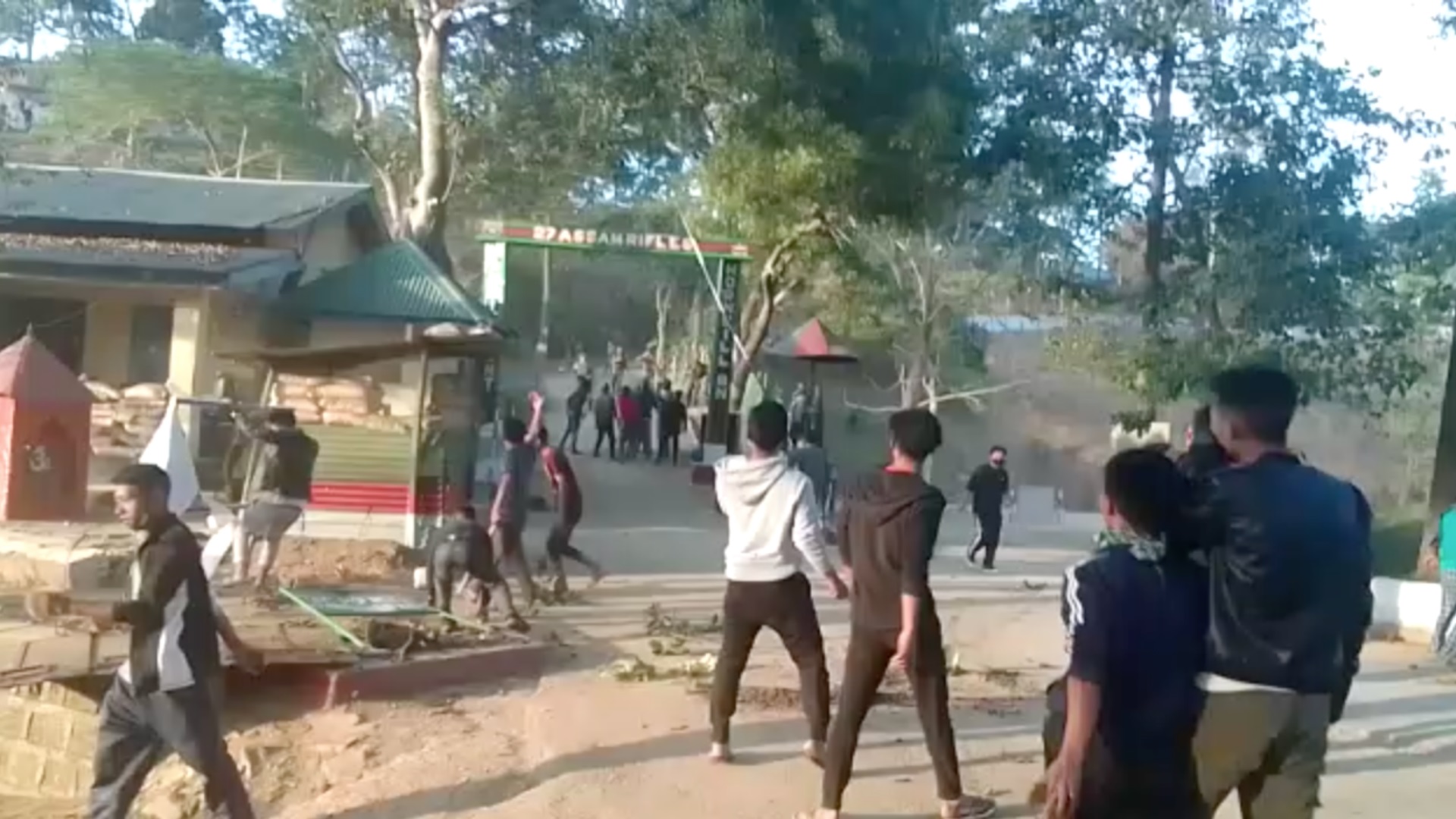
Paying tributes to the victims, Rio made a strong statement against the AFSPA. Rio termed the Oting killings as a clear example of misuse and abuse of AFSPA. Condoling the demise of 14 Konyak villagers, he urged the people to remain restrained and said that it was the time to defeat ferocity with non-violence.
Meghalaya CM Sangma, even though the AFSPA is not enforced in his State, also called its repeal and stated that he would personally take up the issue with the Union ministry. Sangma said in a clear voice that the Mon incident proves that there is no place for AFSPA in today’s society.
The issue reached the Parliament, where Union home minister Amit Shah made a statement admitting that it was a case of mistaken identity. Shah also stated that the situation in Nagaland remains critical but fully under control. He added that the Centre expresses regrets over the incident and offers condolences to the victim families. A special investigation team was formed to investigate the matter, which was asked to submit its report within one month, he informed.
However, the Konyak Union vehemently opposed the statement of Shah and even demanded an apology from him alleging that the Union home minister misinformed the Parliament about the Oting massacre. Shah has to clarify, apologise and ask for forgiveness from the Konyak people and the residents of Nagaland, it stated in a media release. It went ahead urging Shah to understand the meaning of an ambush first. The forum of Konyak people also expressed anger that some media outlets including the satellite news channels based in mainland India tried to present it as a frontal confrontation between the security forces and NSCN rebels.
Earlier, the Army authority expressed its regret over the incident. It also constituted a probe into the incident that could spread a negative message to the peace initiatives taken up by New Delhi. Nagaland police lodged an FIR against the security forces over the incident and the government in Kohima declared ex-gratia of Rs 5 lakh to each victim’s family. Even the Governor of Nagaland (also Assam) Prof Jagdish Mukhi also officially condemned the incident.
Now the Governor is expected to summon a special session of Nagaland legislative assembly on December 20 to discuss the AFSPA with the backdrop of Mon civilians’ killings. The special session, for which demands were raised by various Naga groups including Naga Mother’s Association, Naga Students Federation, etc, may pass a resolution for repealing the AFSPA. Earlier an emergency cabinet meeting of the Rio government on December 7 took a unanimous decision for repealing AFSPA from Nagaland immediately. “AFSPA has brought only pain and suffering to our people. No reason can justify the killing of civilians,” said Nagaland’s former chief minister TR Zeliang, adding that when the Naga people were waiting for a final breakthrough in the ongoing peace process over Naga political issues, the Mon incident came only as a negative shocker.
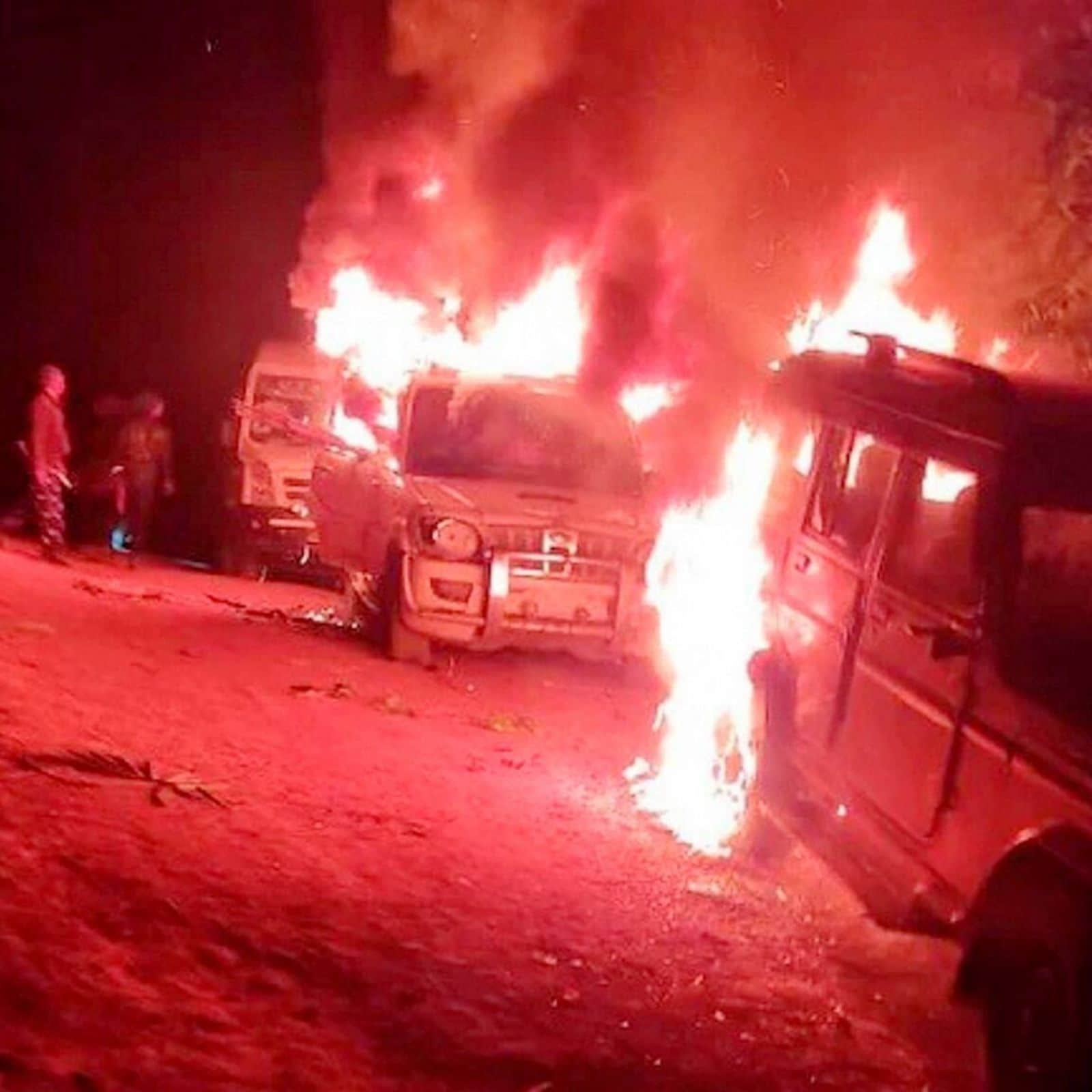
Even the Nagaland BJP chief Temjen Imma Along, also a minister in Rio’s cabinet, termed the incident as a genocide. Konyak Union Kohima president H Angnyei Konyak called for revocation of the AFSPA. Meanwhile, a Naga Hoho delegation led by president HK Zhimomi visited the Oting village to extend its solidarity to the villagers. They were
unanimous in their demand to repeal the draconian law.
Insurgent outfit National Socialist Council of Nagaland (NSCN-IM) promptly commented that the ongoing peace talks would not be fruitful under the shadow of AFSPA. The notorious act gives the security personnel (even a non-commissioned officer) the license to arrest, shoot and even kill any individual on mere suspicion, stated the armed outfit adding that Nagas had the bitter taste of AFSPA on numerous occasions till date and for any reason ‘blood and political talks cannot go together’.
Quoting a survivor of the fateful incident, Morung Express newspaper from Nagaland, reported that the justice asked by the victims would be the revocation of AFSPA, so that no such incident can take place in future (neither in Nagaland nor anywhere in the country). Mr Manlei, who is still undergoing medical treatment for injuries, claimed that he was shot by a security person for just questioning about the dead bodies. He was soon taken to a Mon hospital by fellow villagers.
Manlei revealed that his younger brother Shomaang was one of the eight youths returning home after work in a pickup vehicle who faced the bullets of security forces. Shomaang along with five others died on the spot. Manlei arrived at the location later and found that the vehicle was splattered with blood. Initially he along with a few others could not find any dead body, but later those were recovered from a military truck.
Northeast Students’ Organization (NESO) along with its affiliated State units including All Assam Students’ Union, All Manipur Students’ Union, All Arunachal Pradesh Students’ Union, Khasi Students’ Union, Garo Students’ Union, Mizo Zirlai Pawl, Twipra Student Federation, etc recently organized demonstrations against the ruthless acts of security forces taking advantage of AFSPA provisions. Some of their slogans included “Repeal AFSPA, Punish Guilty Security Personnel, Stop Neglecting Northeast and We Want Peace in Northeast.” Participating in a television debate, anchored by journalist Manas Pratim Deka of ND24 news channel, the AASU general secretary Shankarjyoti Barua made a critical comment that New Delhi still believes ‘there is no India after Kolkata’. He declared that the indigenous people of Northeast stand in solidarity with the residents of Oting who have every right to live with dignity. The student leader even questioned the Centre, why the AFSPA is not enforced in terror affected regions of mainland India.
Another panelist Palash Changmai of Asom Jatiyatabadi Yuva Chatra Parishad warned that the people of Northeast would not tolerate atrocities anymore. He urged all the north-eastern chief ministers to come together to seek repeal of AFSPA. Political analyst Adip
Phukan also asked the Centre about the validity of AFSPA, which is now 63 years old. How long it will be enforced in Northeast to terrorise and kill innocent people with full impunity to the security personnel, Phukan raised the pertinent question in the show.
“The 21 Para Commandos carried out the genocide was not because of a mistaken identity, but it was an intentional act, reasons best known to the security forces. When the first batch of victims were returning home from their work, the security personnel, who laid the ambush, did not ask to stop their vehicle, but started firing indiscriminately,” said a Kohima-based journalist, who wanted anonymity.
Speaking to this writer, he even alleged that initially the security personnel tried to cover up the dead bodies with camouflage dresses, but the villagers who had already arrived at the location immediately identified the victims. They also engaged in verbal confrontation
with the security personnel. It led to the unfortunate killings of seven more persons and injuring a few others.
“21 Para Commandos were not familiar with the localities and its residents. But they probably did not inform the Nagaland police and even the Assam Rifles (which is engaged in security duty in those areas) about the ambush. In haste, they fired at the vehicle following their inputs (which was seemingly not accurate). But later the Assam Rifles’ camp had to face the villagers’ anger. All these facts should be out in the probe,” he asserted.
National Human Rights Commission (NHRC , New Delhi) issued notices seeking a detailed report from the defence secretary & Union home secretary and Nagaland chief secretary & police chief over the killings of civilians in the Mon army operation. The incident
triggered several other events of arson, rioting and attack on soldiers and Assam Rifles camp, resulting in more injuries and deaths, including that of one soldier, said a NHRC statement. Later the Hong Kong-based Asian Human Rights Commission (ACHR) also
issued a statement over the Nagaland incident, where it meant that the special unit (of security forces) involved in the operation killed the unarmed civilians returning from work in cold blood flouting the standard operating procedures. They opened fire without any warning (to the passengers travelling in the vehicle), it observed. “When the kith and kin of the miners set out to look for them once they did not return in time, the second round of gory killings unfolded. As reported by media houses, when the villagers spotted the vehicles of the unit, they were told that they were being taken to hospital. On checking themselves, the villagers found dead bodies and it was there that all hell broke loose, ending in a repeat firing and killing of a soldier,” said ACHR.
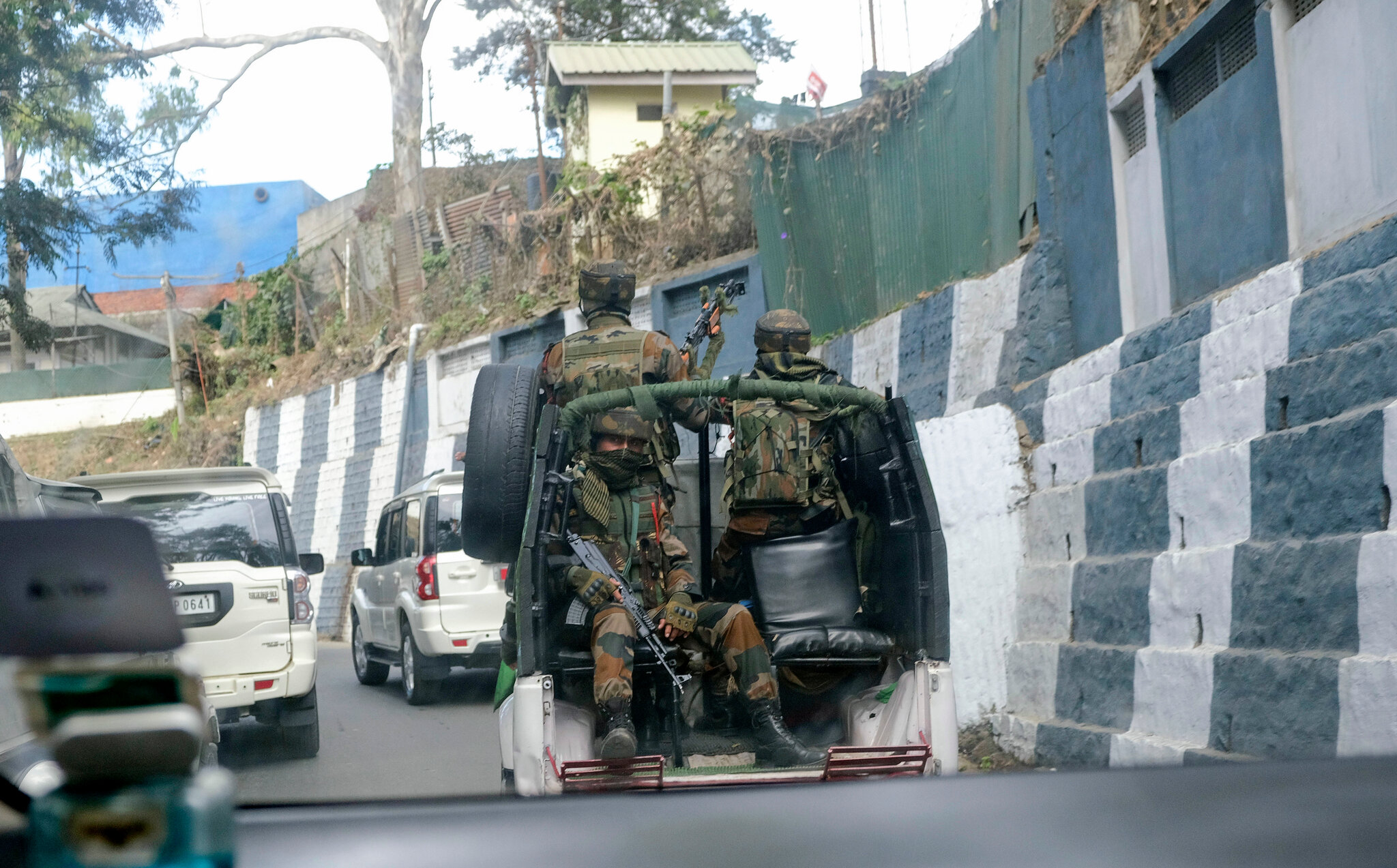
Terming the act as a colonial relic which provides the security forces, deployed in disturbed areas, power to take any action under the section 4 of AFSPA, the commission observed that ‘maybe this time the government of India tries to understand not only the
illegality of such a draconian act in its rule books but also the sentiments of the people, including its political allies and shows the political will to repeal it’. Nagaland Post, a popular English daily of the State, editorialized the issue saying that while Christians across the world are preparing to celebrate the birth of Jesus on Christmas and then to welcome a new year, people of Nagaland are still trying to come out of the shocking 4 December incident.
For the people of Oting village in particular and Mon district in general, time stands still. They cannot get over the massacre of civilians by a unit of the special forces of 21 para-commandos. For the victim-families no amount of ex-gratia or offer of employment can
lessen their deep grief or make them forget how their dearest ones were gunned down without any reason.
“The pain and grief caused by unnatural deaths has also shocked and pained not only the State or Northeast but beyond. It shows the magnitude of the incident which has catapulted the draconian Armed Forces (Special Powers) Act 1958 to limelight,” stated the editorial adding that bringing the guilty unit of security forces to the court for justice is another important aspect of the tragedy.
For the people of Nagaland, the AFSPA is a living testimony of the brutalities which have been inflicted upon them for over 60 years and such a draconian and black law should have no place in a democratic country. In the aftermath of the 4 December massacre, the response of New Delhi was like adding more salts to the injury, it added.
“From all accounts including those who survived the massacre, the vehicle (targeted by the security forces) was fired upon without any warning and without any provocation,” claimed the editorial adding that the Centre should set the record straight and withdraw the
controversial part of Amit Shah’s statement (that of mistaken identity of the travelling village-youths), even if it may be too little too late.









